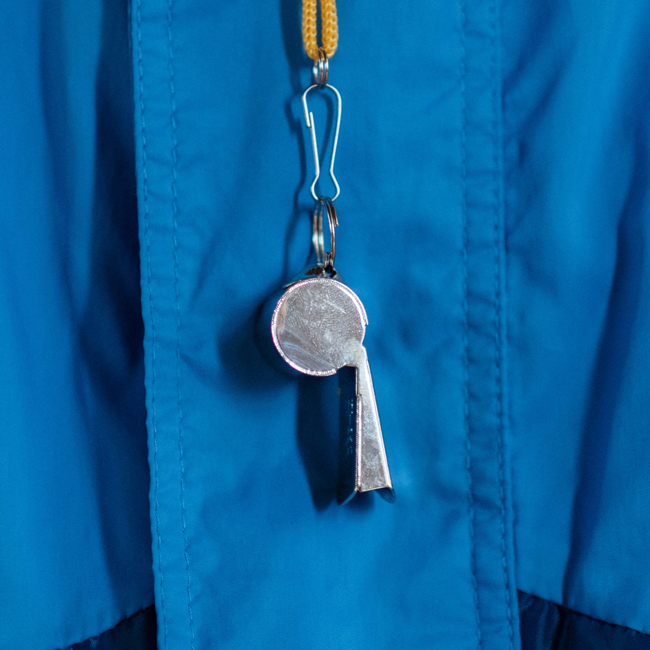
President elect Joe Biden won the recent United States election with 306 electoral college votes to Donald Trump’s 232. Biden also won the popular vote around 80 million to 73 million.
Trump has alleged the election is “rigged” and fraudulent, claims based on no evidence whatsoever, while his legal challenges have been thrown out by one court after another. In an attempted coup d’état, Trump has refused for weeks to concede defeat or to willingly undertake the essential part of the democratic process assisting the transition to the new administration before vacating the White House. It is hard to find a worse example of narcissistic entitlement.
Lack of empathy is at the heart of narcissism too, and there has been a breathtaking callousness in Trump’s indifference to the Covid catastrophe unfolding in the US and his persistent refusal to act. There are more than 12 million Covid cases in the US, among the very highest infection rates per million people in the world. More than a quarter of a million people have died.
On Friday November 20, new cases topped 200,000 in one day and there were more than 2000 deaths, adding to the horrific 250,000 plus death toll. The need for decisive action could not be more urgent. The extreme self-focus, the ‘All About Me’ aspect of narcissism, is evident as Trump plays golf, idly suggests war with Iran, and tweets self-pityingly about being cheated of his “rightful” victory.
One can see the origins of Trump’s narcissism growing up spoiled and overindulged in a wealthy but emotionally harsh and cold family. Donald’s father, Fred Trump, a real estate mogul, would berate him; “Be a Killer not a Loser.” That was the family ethos, the motto. To show kindness, care or admit vulnerability was to be a “loser.” His father not only encouraged Donald in his cruel bullying of siblings but also joined in. Both bear responsibility for the destruction of Donald’s elder brother, Fred Trump junior.
In the Trump family, only making money was valued. Fred was a highly skilled commercial airline pilot who was jeered at as nothing more than a “chauffeur in the sky,” and treated as beneath contempt because his profession did not earn the megabucks that real estate did. Fred was driven to alcoholism, depression, and died early at 42, suicide by drinking. It wasn’t just his toxic family, however, that created the malignant narcissist who refuses to leave the White House.
They call it the “asshole effect.” Stunning new research by the University of California’s Paul Piff shows that wealth increases narcissistic behaviour.
Piff conducted a series of real-life experiments which showed for example, that people driving new model and more expensive cars were 4 times more likely to cut drivers of lower status vehicles off at a crossing. They were three times less likely to yield at a pedestrian crossing. Drivers of the least expensive cars all gave way to pedestrians.
Intrigued by this, Piff did lab experiments and found “the richer the meaner” effect. The richest students were meaner and more likely to consider “stealing or benefiting from things which they were not entitled” than those from lower-class backgrounds. Piff said that “upper-class individuals feel more entitled, are less concerned with the needs of others, and at times were prepared to behave selfishly, even unethically, to get ahead.”
That is deeply concerning in times of mounting inequality. Wealthier people were more likely to agree with statements such as “I honestly just feel more deserving than other people.” They were also vainer, more likely to rush to a mirror and check themselves out if a photograph was being taken. They drew larger circles to represent themselves than they drew to represent other people.
If you think of yourself as bigger and more important than others, it’s not surprising that you have an excessive sense of entitlement and exploit others. They simply don’t matter as much as you do.
Trump is notorious for being cheap and cheating his employees of appropriate payments, as well as ruthlessly getting rid of them once they have passed their use-by date.
Piff’s laboratory experiments revealed that even when poorer people were simply primed to think of themselves as wealthy, this increased feelings of superiority and entitlement, and they began to behave selfishly. When people look down on others, “they tend to acquire the belief that they are better than others, more important and deserving.”
This led to bad behaviour, for example helping themselves to more sweets meant for children in a lab next door, than if they were primed to feel disadvantaged. “That suggests it is more the psychological effects of wealth than the money itself,” Piff said.
Strikingly, Piff found that in unequal societies, higher-income people were richer and meaner – less likely to give money to charity than poorer people – than in more equal societies.
It is not only wealth which can increase narcissistic behaviour. Patriarchal society asserts the superiority of men over women and gives them greater entitlements. Hardly surprising then that research shows that narcissism is higher in men than women. Research also shows that male entitlement and a sense of superiority can have appalling consequences for increased sexual aggression and predation and is a key factor in domestic violence.
Fame increases narcissism and male sexual entitlement, as we can see by the numbers of high-profile powerful men like Harvey Weinstein called out and brought to justice by the Me Too movement. Donald Trump infamously said “I’m automatically attracted to beautiful — I just start kissing them. It’s like a magnet. Just kiss. I don’t even wait. When you’re a star, they let you do it. You can do anything. Grab ’em by the pussy. You can do anything!”
It’s not just rich and famous men who can behave like that. The scandal over a so-called “Triwizard Shorenament,” organised by privileged boys at the elite Sydney private boys school Shore, which charges $30,000 in annual fees, reeked of entitlement. Their plans for Muck Up day were racist, misogynist and cruel; “Spit on a homeless man”, “have sex with a woman over 80 kilograms,” or a woman who “scored” a lowly 3 out of 10 for looks, have sex with “an Asian chick”, and shit on a train.
So what is the answer?
There are clear lessons from the research on narcissism. Anything which leads to a sense of superiority and entitlement is bad news. Hierarchies among human beings based on wealth, race, sexuality or gender need to be challenged. Economic inequality leads to more narcissistic behaviour than exists in more equal societies. In parenting and education, we should beware the narcissistic pitfalls of privilege.
A sense of superiority and entitlement leads to exploitative and even cruel behaviour. If lack of empathy is a core component of narcissism with devastating results, then we need to engage in programs proven to raise empathy in schools. And we desperately need anti-entitlement programs asserting an ethic of care for others, instead of “Me First” as an ideal to live by.
This project is supported by the Copyright Agency’s Cultural Fund.
![]()
Ethics in your inbox.
Get the latest inspiration, intelligence, events & more.
By signing up you agree to our privacy policy
You might be interested in…
Opinion + Analysis
Business + Leadership, Relationships
Corporate whistleblowing: Balancing moral courage with moral responsibility
Explainer
Business + Leadership, Relationships
Ethics Explainer: Moral injury
Opinion + Analysis
Relationships
Why learning to be a good friend matters
Opinion + Analysis
Health + Wellbeing, Relationships




